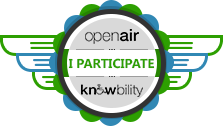I have learned alot about cognitive rest and its importance in re-finding balance, and re-building after my injury. I was reminded of it last week when I noticed that I was getting more and more out of balance in my life. I realized I needed to change direction and get my life going towards re-finding balance.
There are many names for good rest — brain rest, cognitive rest, power naps, downtime, REM sleep. My friend has coined the terms “aggressive rest therapy” and “emergency nap”.
The role of cognitive rest is so critical.
Several years after my accident, I benefited from the guidance of a neuropsychologist who taught me my compensatory strategies so I wouldn’t get too tired–or what my friend and I call, “too tired to sleep”. The neuropsychologist taught me to do daily life activities then rest, then do daily life activities then rest, and she thought I needed 3 rests a day. She called this ” pulsing”. I learned that I could actually get much more done in my day if I rested my brain frequently.
My vision therapy Doctor taught me to stop doing or limit the things that were fatiguing to my eye-brain connection. I had to learn what these activities that caused the fatigue were. They were often things that I could have easily done before my injury like walking more than 20 minutes. So, it took me years to learn when I was (unintentionally) over-tiring myself and to stop doing them.
Later, a speech therapist gave me rules like “no computer after 7 pm at night”. ( This was helpful when I was finally able to be back on the computer with the help of assistive technology). She also taught me to limit my time on the computer for only 20 minutes a time.
And my speech therapist taught me to stop all activities BEFORE my symptoms (irritability, intense fatigue, feeling overwhelmed and increased confusion) began. It was more efficient to stop ahead of time then to wait til the onset or overdoing it came. Because the onset was often delayed, this self-awareness about when to stop was really hard to to master and took me years.
But I have gotten ahead of myself.
Last week, when I realized I was out of balance, I was able to use the cue to begin the process of putting into place my compensatory strategies to help me. Thursday afternoon, I thought I would take one last look at my blog before I published it. Turns out our cable service went down. So I couldn’t publish the blog post from my computer. Rather than being frustrated, I realized the best thing for me was to seize the moment and let myself take a “cognitive rest” for the entire time that my sitter was here.
Boy, did that help me! Sometimes, it feels like too much luxury to stop to get brain rest. Or, like Thursday, that I don’t have time to get cognitive rest.
What I have learned through practice is that when my internal voices are telling me that I don’t have time, is usually when I need downtime the most! As an overachiever, learning to “hold back my inner over-achiever” has been one of the hardest things about my recovery. I have learned for my own recovery, I need to err on the side of more rest rather than erring on the side of less rest.
And, as it turned out, getting downtime Thursday was indeed the best thing I could have done for myself. It helped me to be alittle more calm and it helped me regain more balance. I find cognitive rest helps me make my life tolerable and allows me to keep going. My cognition is always better afterwards.
Do you use cognitive rest to help you regain balance and help in your recovery and rewiring? How does it work for you?




Recent Comments